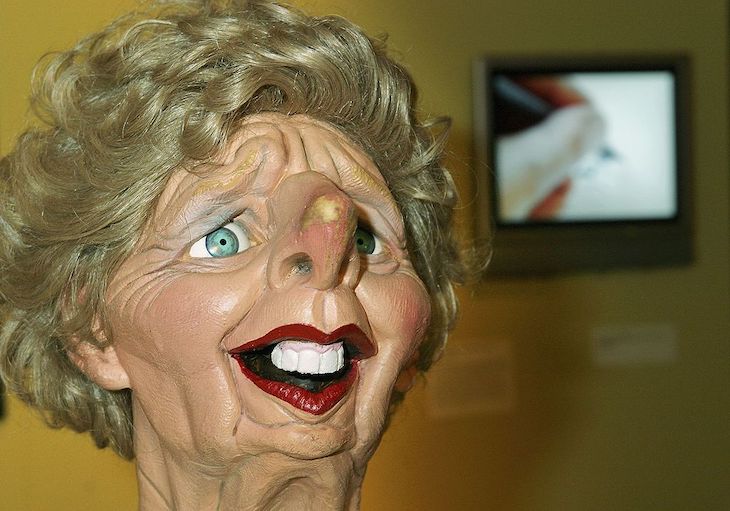Looking back at the year’s West End theatre, a few shows stand out. First, the best. Vanya, starring Andrew Scott at the Duke of York’s Theatre, was an audacious and frankly barmy attempt to reimagine Chekhov’s sprawling family melodrama, Uncle Vanya, as a monologue. The risk was that it might come across as a lengthy pitch for a TV show performed by an incorrigible show-off. But Scott made it work. Copycat projects are bound to follow.
One of the year’s worst efforts, A Little Life, was based on an American novel about sexual torture and self-harm. The star, James Norton, spent most of his time on stage at the Harold Pinter hacking his forearms to bits or being kicked around by various abusers. Claret got spilled all over the place. Norton tugged his clothes off as well. Never a good sign. A decent play doesn’t need to be a peep-show.
The Pillowman, by Martin McDonagh, is regarded as a modern classic even though the script is just a re-hash of the author’s early short stories. This version, at the Duke of York’s Theatre, starred Lily Allen as a writer being investigated by secret policemen in a nasty totalitarian state. On stage, the main events were described by Allen’s character in long screeds of reminiscence which left viewers feeling that the real action was happening elsewhere.
Good luck finding a play criticising the NHS
The same problem afflicted Lyonesse, at the Harold Pinter, a play about a washed-up actress played by Kristin Scott Thomas. Her character was plotting a comeback as a Hollywood film star even though she was in her mid-60s and never been a film star in the first place. Large chunks of the script consisted of characters gossiping about events that had happened years ago to people who didn’t appear on stage.
The term ‘memory play’ is sometimes used to dignify these dreary outpourings of jabber. Clyde’s, at the Donmar, was a festival of chit chat in which a gang of paroled convicts discussed their criminal misdeeds while cooking junk-food in a filthy kitchen. Virtually nothing happened on stage.
The least attractive image of the year was the poster for Death of England at the National Theatre. It showed us two miserable women scowling and weeping in close-up. At least it advertised the show with commendable accuracy. The script was a toxic rant by two incompetent shop-keepers who blamed their bankruptcy on racial politics.
Spitting Image ran this summer at the Phoenix Theatre and play-goers were probably hoping to see Westminster’s most recent scandals being deftly skewered by the finest satirists in the land. Instead the show was a sci-fi spoof whose main gag centred on the small stature of Tom Cruise. The plot involved a superhero, Sir Keir Starmer, who tried to defeat a rabble of clueless upstarts led by a stammering Boris Johnson and an incarcerated Donald Trump. The writers were so short of ideas that they brought Margaret Thatcher back from the dead in order to slay her afresh. They obviously preferred to repeat fashionable prejudices rather than to scrutinise or pillory those in authority.
The cowardice of our theatre culture is becoming painfully obvious at a time when trans rights activists are posing as victims and claiming to be marginalised while their insignia flies from government buildings and appears on the uniforms of policemen. Numerous interest groups are protected and not challenged by the theatre. Good luck finding a play criticising Islam, the NHS, the BBC, the EU, Just Stop Oil, the dinghy people, abortion on demand, foreign aid, the Greta cult or our hero Zelensky. It’s not that producers and writers haven’t the guts to approach these subjects. It’s a question of practicalities. A play that cross-examined any of the lobbies mentioned above would be instantly boycotted by actors, agents and technical support staff.







Comments